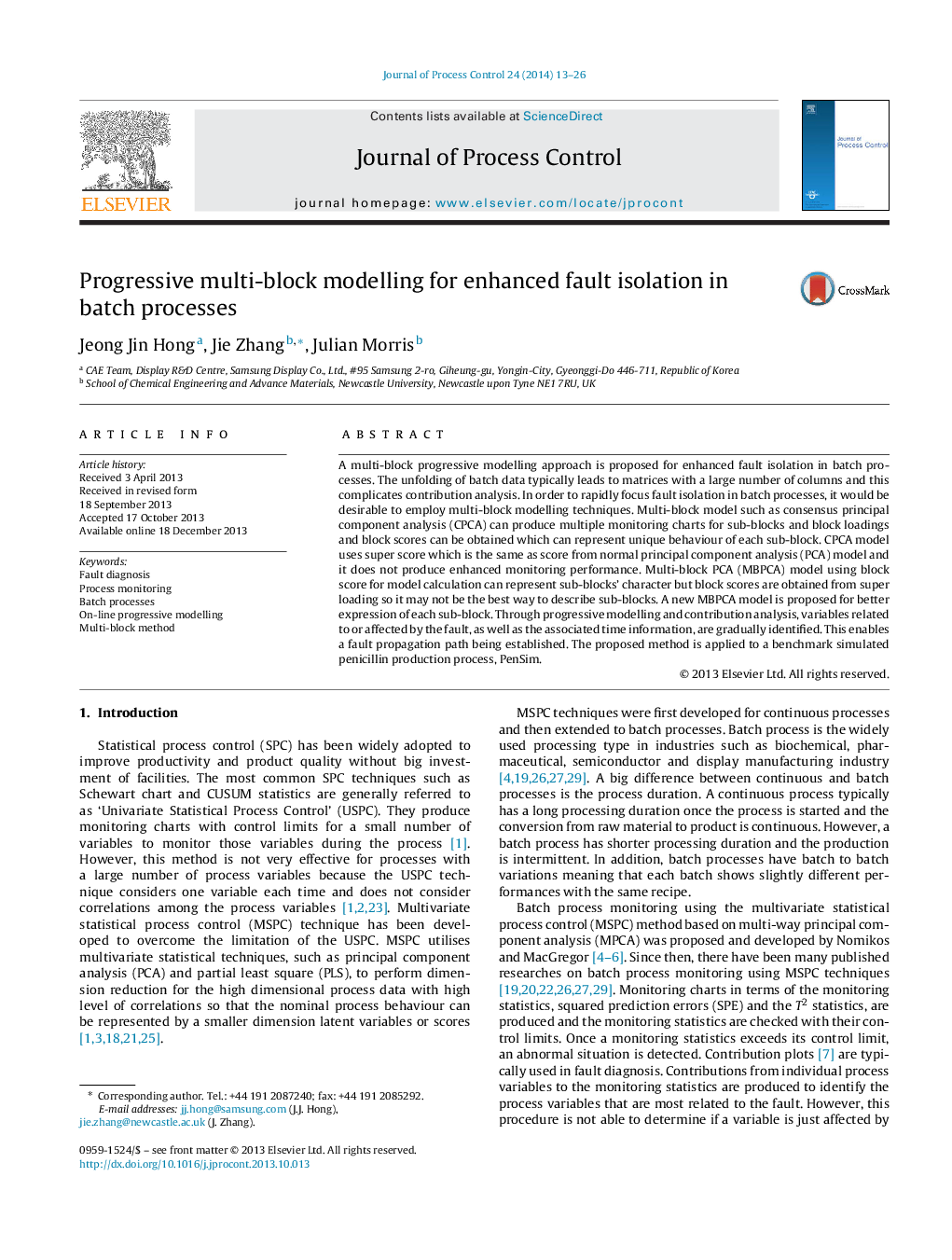| کد مقاله | کد نشریه | سال انتشار | مقاله انگلیسی | نسخه تمام متن |
|---|---|---|---|---|
| 688965 | 889583 | 2014 | 14 صفحه PDF | دانلود رایگان |
• A multi-block progressive modelling approach is proposed for enhanced fault isolation in batch processes.
• Through progressive modelling and contribution analysis, variables related to or affected by the fault, as well as the associated time information, are gradually identified.
• Fault propagation paths can be established through multi-block progressive modelling.
A multi-block progressive modelling approach is proposed for enhanced fault isolation in batch processes. The unfolding of batch data typically leads to matrices with a large number of columns and this complicates contribution analysis. In order to rapidly focus fault isolation in batch processes, it would be desirable to employ multi-block modelling techniques. Multi-block model such as consensus principal component analysis (CPCA) can produce multiple monitoring charts for sub-blocks and block loadings and block scores can be obtained which can represent unique behaviour of each sub-block. CPCA model uses super score which is the same as score from normal principal component analysis (PCA) model and it does not produce enhanced monitoring performance. Multi-block PCA (MBPCA) model using block score for model calculation can represent sub-blocks’ character but block scores are obtained from super loading so it may not be the best way to describe sub-blocks. A new MBPCA model is proposed for better expression of each sub-block. Through progressive modelling and contribution analysis, variables related to or affected by the fault, as well as the associated time information, are gradually identified. This enables a fault propagation path being established. The proposed method is applied to a benchmark simulated penicillin production process, PenSim.
Journal: Journal of Process Control - Volume 24, Issue 1, January 2014, Pages 13–26
